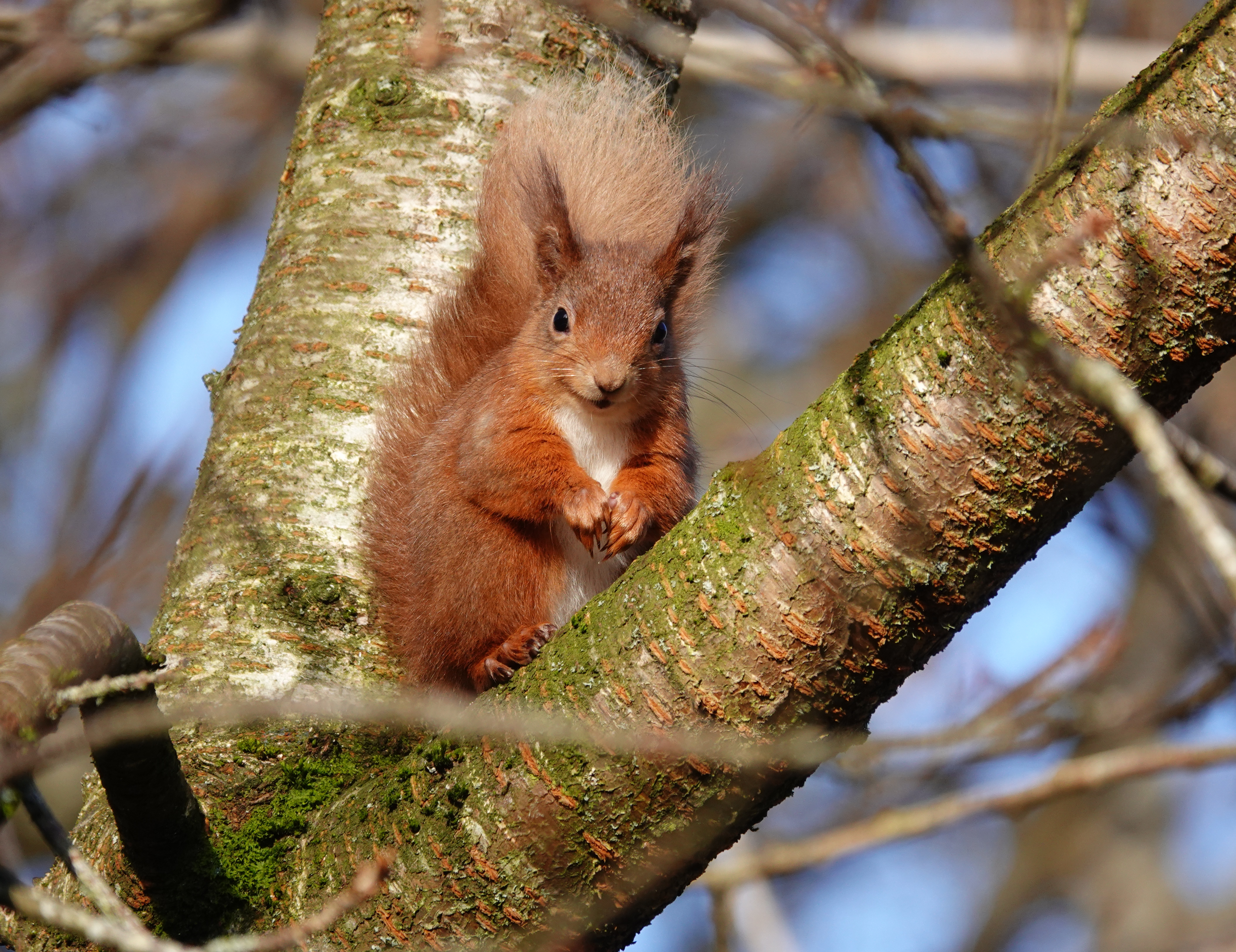Extract | A Scurry of Squirrels
Polly Pullar

Polly Pullar takes us into the world of some of Scotland's most iconic woodland critters ahead of her Wigtown Book Festival event. She is also running a workshop on Writing the Landscape, and two guided nature walks during the festival, one on 28 September and another on 29 September. Please enjoy this extract from A Scurry of Squirrels.
You will always find someone somewhere who will tell you a damning story about a particular animal or bird, but I have yet to find anyone who says anything negative about the red squirrel. It is a fine example of a British mammal we would neatly slot into our ‘good’ category. Little wonder, for this glorious little arboreal gymnast instantly intoxicates us. It exudes charm, fun and devilment, it is playful – almost elfin – and instils awe as we watch it dancing around the woodland canopy. It has an enchanting little face, a beautiful coat of burnished red that glows gold in sunshine, and a superb bushy tail that it can use in numerous ways, including as a parasol or umbrella. Its little ears are often fringed with dramatic tufts that make it look as if the wearer has used the crimping tool on the hair dryer. In this country we love red squirrels with a passion; they are high on the list, often on the top of the list, of the species we most want to see. However, what is shocking is that this was not always the case.
As we struggle to protect and safeguard our small remaining population of red squirrels, it is hard to accept that up until 1981, when they received full legal protection under Schedules 5 and 6 of the Wildlife and Countryside Act, it was perfectly legal to cull them. And they were culled in such large numbers that we almost wiped them out altogether. In fact in some areas, we did just that, and even now, due to loss of habitat, urbanisation and an ever increasing road network, it is likely that many traditional red squirrel haunts have since become so ruined, or lost altogether, that they will probably never again be recolonised by red squirrels.
Perception is a curious aspect to human nature. And everyone’s perception varies. It’s this that makes the way each of us in turn relates to the wildlife that surrounds us so complex. It’s much the same with our incredible native flora – we battle endlessly against dandelions, which are not only flamboyantly beautiful, but most importantly are vital to pollinators including the species we love – bees, butterflies and moths – and replace them with expensive plants from garden centres that often are far less rich in nectar. In nature there is no such thing as good and bad: each living thing, great or small, is part of the magnificent jigsaw that is life itself. The red squirrel is a vital piece, and without it, that jigsaw is incomplete.
The red squirrel has always been up against it. For far too long our forebears believed that it was simply another pest, because of the perceived threat it posed to forestry. It needed to be obliterated at every opportunity. Less than a century ago, the squirrel was viewed with much animosity, but now we have taken a 360 degree turn, and the nation’s swiftly dwindling red squirrel population is relishing a rebirth as one of the country’s favourite mammals. Yet our darling red squirrel is not perhaps as angelic as it might appear, and many are surprised to learn that it too can predate and is not averse to occasionally filching eggs or fledglings from an unguarded songbird’s nest. Protein is an important part of its diet.
I have been fortunate to come to know and love the red squirrel from a very personal angle. I am constantly learning about its fascinating ways, its nature and its natural history. The more I learn, the more I realise that there is so much more to discover regarding these woodland specialists. Through working closely with squirrels, as well as a wealth of other mammals and birds, perhaps the most important thing I have learned is that time is fast running out and if we do not restore and protect valuable habitat, then this enchanting little rodent, and dozens of other species, may be lost and gone forever.